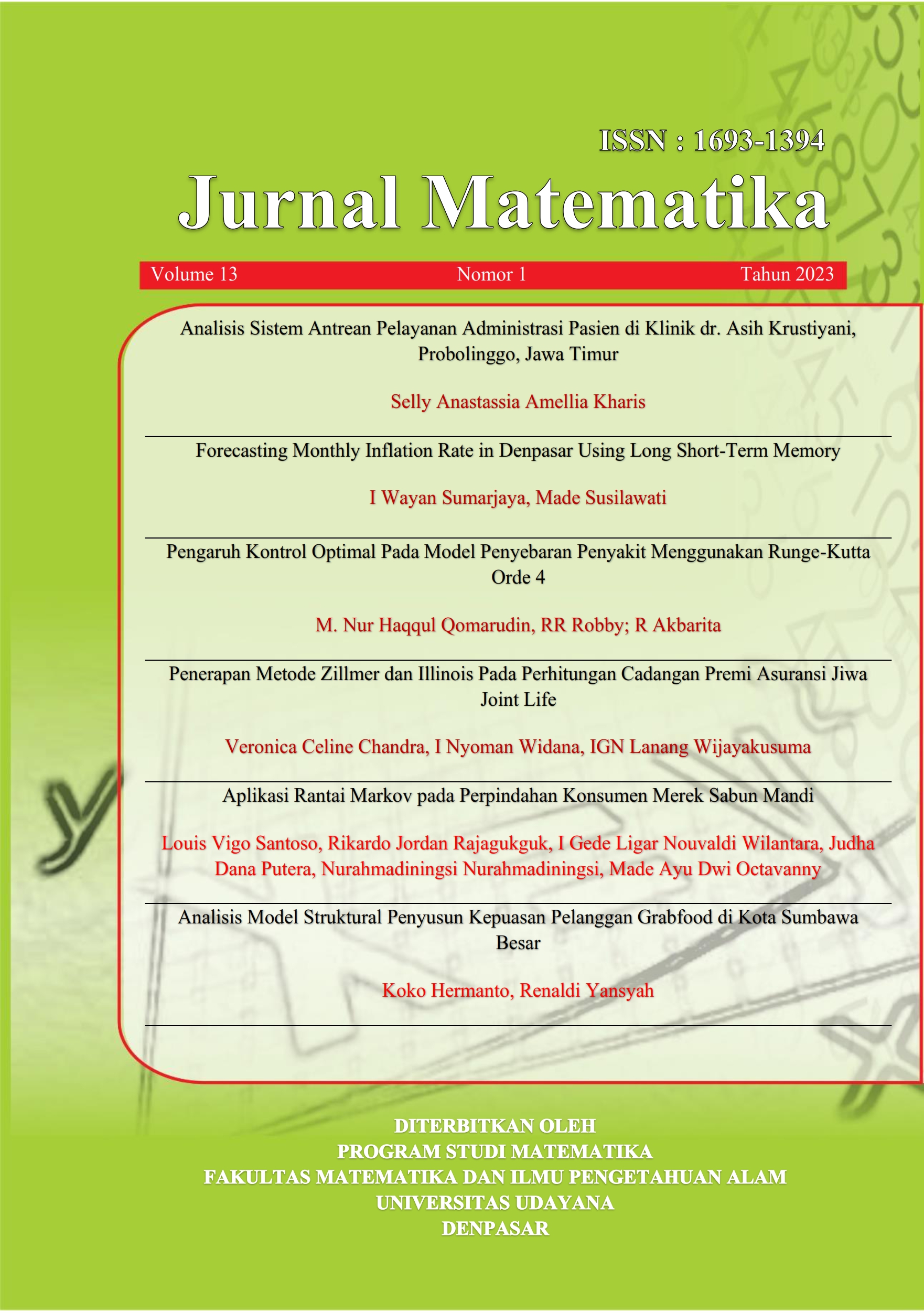Pengaruh Kontrol Optimal Pada Model Penyebaran Penyakit Menggunakan Runge-Kutta Orde 4
Abstract
In the area of mathematics, optimal control is a method for making complex and dynamic decisions. In the applications, this theory has been used to many dynamic issues to develop a system's control strategy. For instance, numerous researchers employ optimum control to determine the best circumstances to control a disease and stop the spread of various diseases. As a result, observations will be made in this study about the comparison of an infectious disease spread dynamic system with and without controls. As of this study, observations are produced by providing control construction on the given model and a number of examples of dynamic system problems (with and without control) . As of this writing, observations are made by first giving control to the model that has been created after delivering a number of examples of dynamic system problems. After that, both models received numerical simulations. Based on the observations collected, it is possible to draw the conclusion that a disease's best control, whether achieved by treatment controls or preventive controls like immunizations, depends on the disease's mode of transmission. The spread of infectious diseases can be effectively controlled utilizing treatment processes and preventative processes, such as immunizations, administered widely within the first three months. By accelerating the healing process for infected people and using immunizations in combination, this control can be accomplished.
Keywords: Optimal control, numerical simulation, Dynamical system














